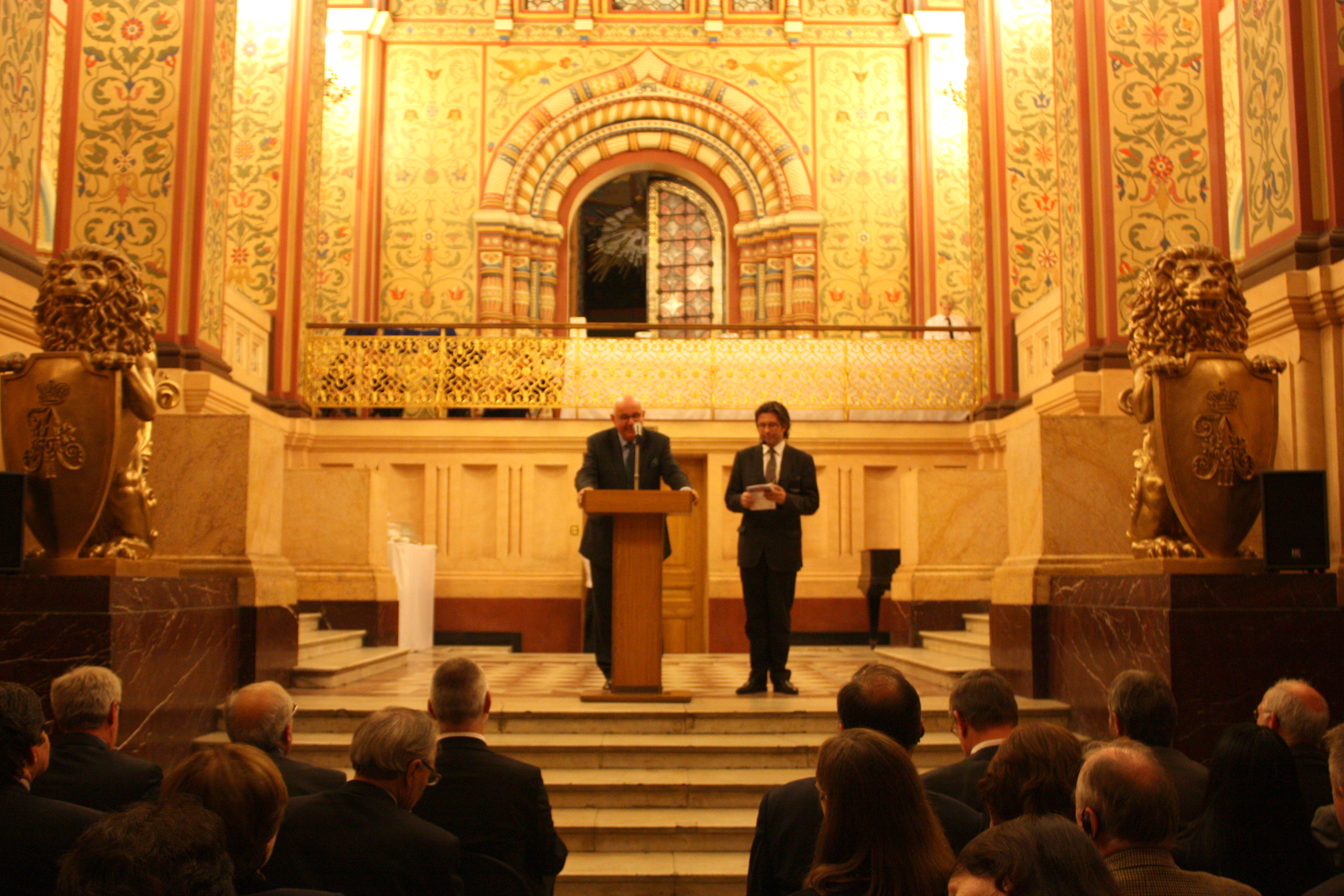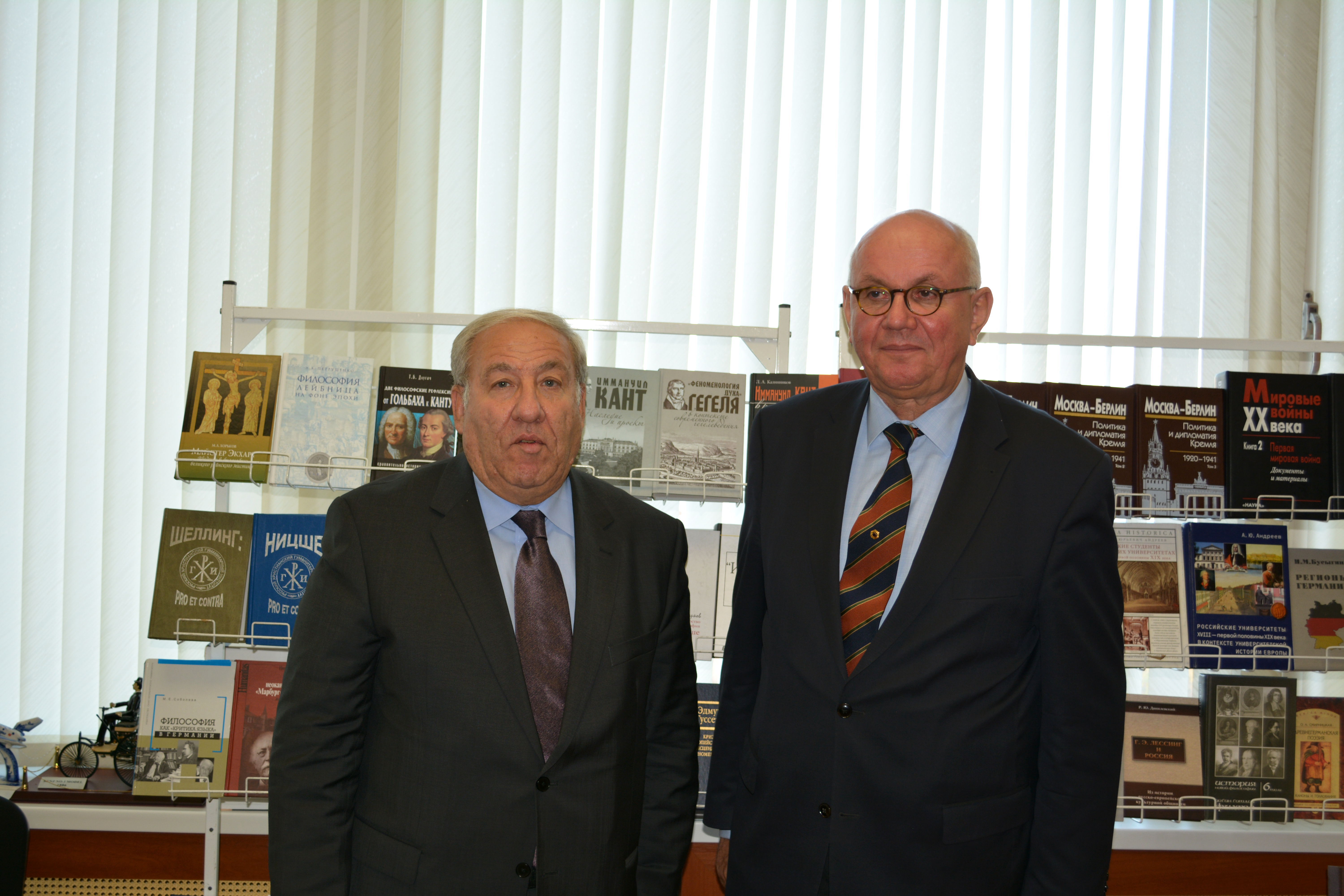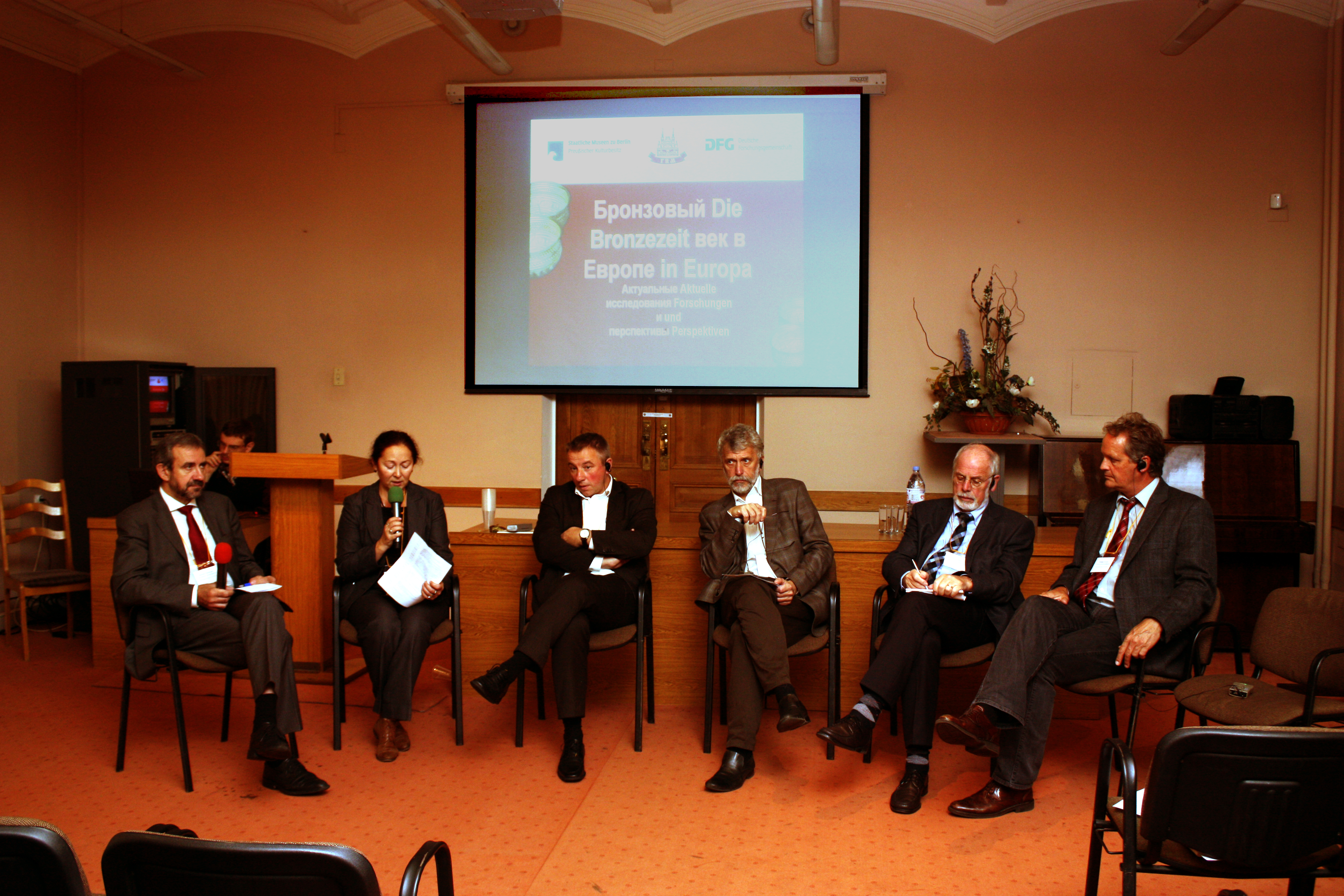"Lasting Structures for German-Russian Collaboration"
DFG Celebrates 10th Anniversary of its Russia/CIS Office
(28.10.13) On 16 October 2013, the DFG celebrated the tenth anniversary of its Russia/CIS liaison office in Moscow with a special event. Some 150 academics, politicians and other leading figures from both Germany and Russia, including DFG President Professor Peter Strohschneider, directors of academy institutes, university rectors and the German Ambassador to Russia, gathered at the State Historical Museum in Red Square, in the centre of the Russian capital. The museum's beautifully lit parade vestibule provided a magnificent backdrop for the occasion. The host, DFG President Professor Peter Strohschneider, was clearly delighted as he welcomed the guests.
In his address, which, like all the speeches, was simultaneously interpreted, the DFG President looked back at the past ten years and praised the successes of the DFG's liaison office in Moscow. He noted that bilateral cooperation had been systematically promoted at both academic and institutional levels: "This has created not only a better framework for German researchers, but also lasting structures for German-Russian and international collaboration." Strohschneider also praised the DFG's partners in Russia, the Russian Foundation for Basic Research (RFFI) and the Russian Foundation for the Humanities and Social Sciences (RGNF). The collaboration, he said, has been highly successful.

DFG President Professor Peter Strohschneider gave a special address in the parade vestibule of the State Historical Museum in Moscow
© DFG / Benedikt Bastong
With regard to cooperation in research funding, Strohschneider commented: "By issuing joint calls for proposals with our two partners, we can grant funding on a competitive basis following a peer review process – in line with established DFG procedure in Germany." This is not something that can be taken for granted, because coordinating international funding programmes always requires considerable additional work and a high degree of flexibility on the part of the partners. The German Ambassador to Russia, Ulrich Brandenburg, stressed the importance of good partnerships. "The DFG office in Moscow is a valued partner, not only to the Russian research organisations but also to the German embassy," he said.
Gifts presented by long-term partners RFFI and RGNF
The first agreements between the DFG and RFFI came about in 1994, while an agreement with the RGNF has been in place since 2005. Both Russian partner organisations presented their warmest congratulations on the tenth anniversary of the DFG office and had words of praise for the German-Russian collaboration. Following these addresses, Professor Vladimir N. Fridlyanov, the Chair of the RGNF, and Vladimir Kvardakov, the Vice-President of the RFFI, presented the DFG with an anniversary gift of large-format illustrated books.

Vladimir N. Fridlyanov (RGNF, left) and Peter Strohschneider (DFG)
© DFG / Jörg Schneider
The following day, Prof. Strohschneider paid a visit to the RGNF – the first occasion on which a DFG President had visited the Foundation. Strohschneider and his Russian counterpart, Vladimir Fridlyanov, used the opportunity to discuss, among other things, the resumption of calls for proposals after a gap of many years. Meanwhile, a delegation from the DFG led by Beate Konze-Thomas (Head of Department for Coordinated Programmes and Infrastructure) and Klaus Wehrberger (Head of Research Centres Division) paid a visit to the DFG's second partner organisation, the RFFI, where they discussed the joint funding of Collaborative Research Centres.
Europe without borders: in the Bronze Age – and today?
To mark the tenth anniversary of the Moscow liaison office there was also an international conference entitled "The Bronze Age in Europe", hosted by the DFG, the National Museums in Berlin - Prussian Cultural Heritage and the Moscow State Historical Museum. The conference provided an opportunity for researchers from Russia, Germany and Denmark to debate the latest research findings in areas such as leadership, religion and worship in the Bronze Age. During the final discussion on 17 October, Professor Nikolay Makarov, Director of the Institute of Archaeology of the Russian Academy of Sciences, noted that there is still much to be discovered about the Bronze Age. "Above all we need to investigate in greater depth the context of individual finds from the Bronze Age," he said, describing the task facing archaeologists over the next few years. Professor Hermann Parzinger, President of the Prussian Cultural Heritage Foundation, also called for exact material analysis as a further step for future research: "We need to carry out material and technological analyses of the objects that we have already studied, not simply keep them under lock and key."

Final discussion at the Bronze Age conference: Hermann Parzinger, Natalia Shishlina, Matthias Wemhoff, Nikolay Makarov, Peter Funke, Rüdiger Krause (L to R)
© DFG / Benedikt Bastong
By way of conclusion, Professor Peter Funke, Vice-President of the DFG, emphasised once again the importance of an international dialogue between researchers: "Our conference and the exhibition, which we visited together as a group, were based on the theme of a Europe without borders in the Bronze Age – and we, after all, are seeking to transcend borders and create a European research area."
Benedikt Bastong
- Go to the website of the DFG's Russia/CIS offic(interner Link)
- Go to press releas